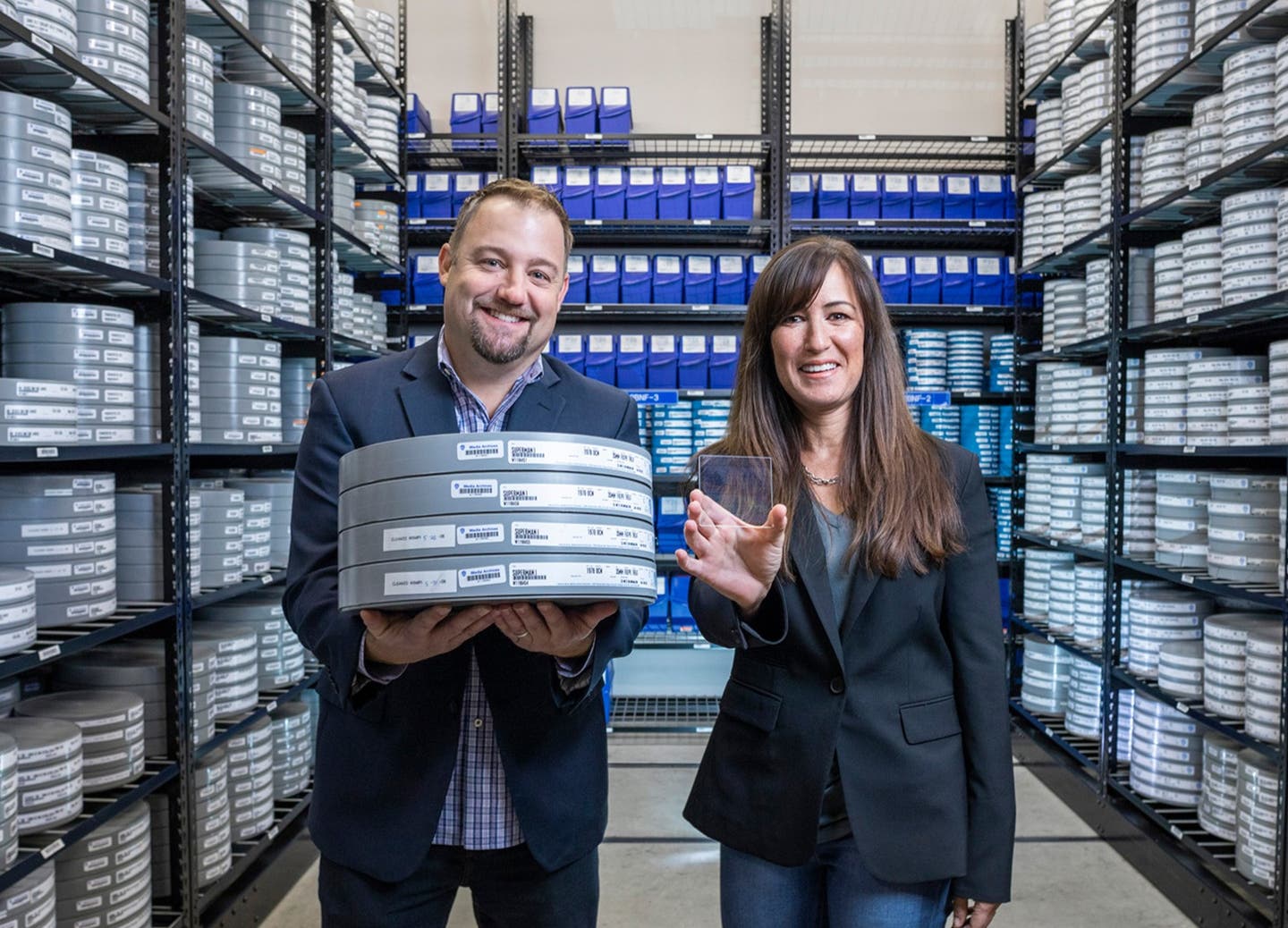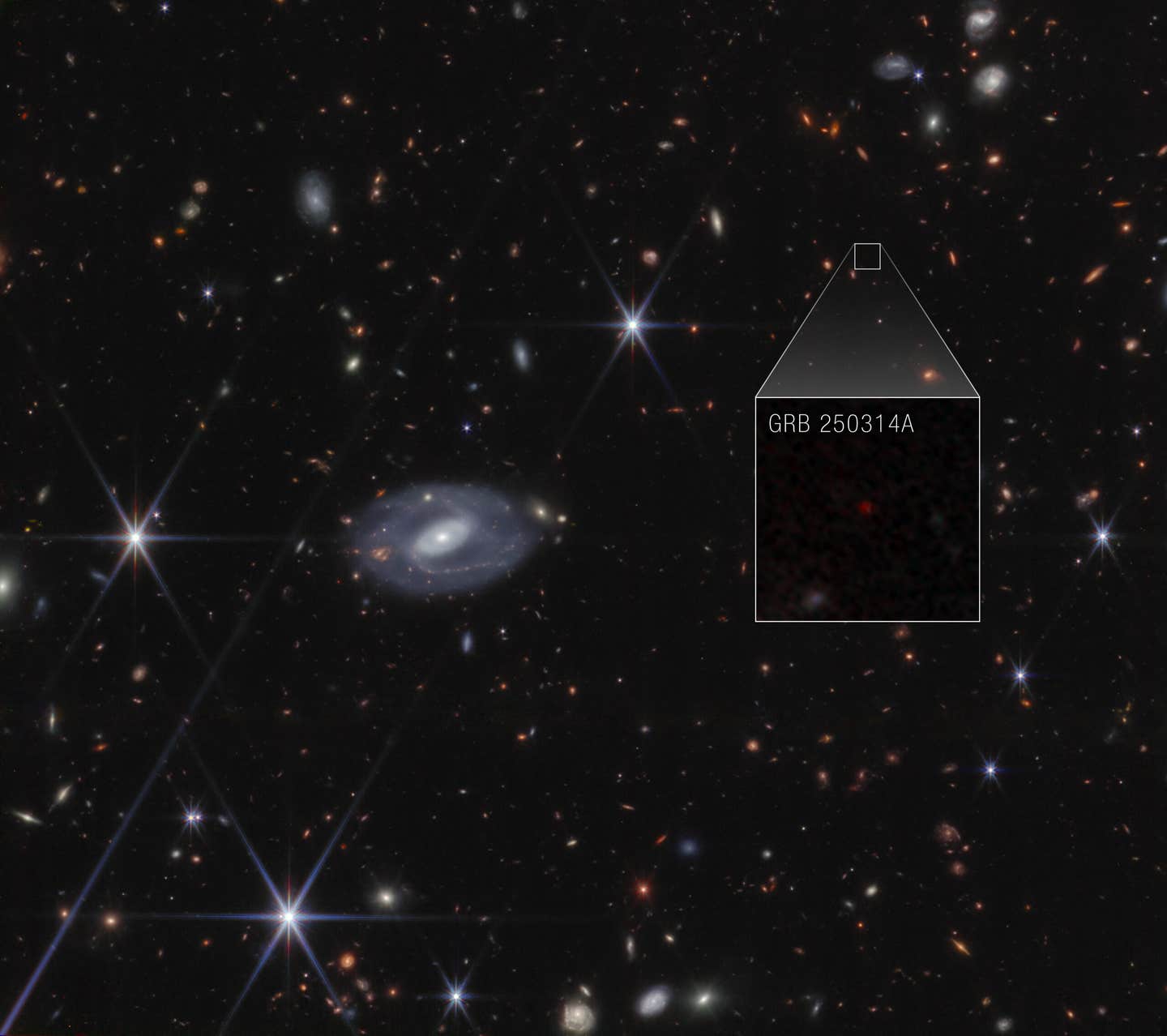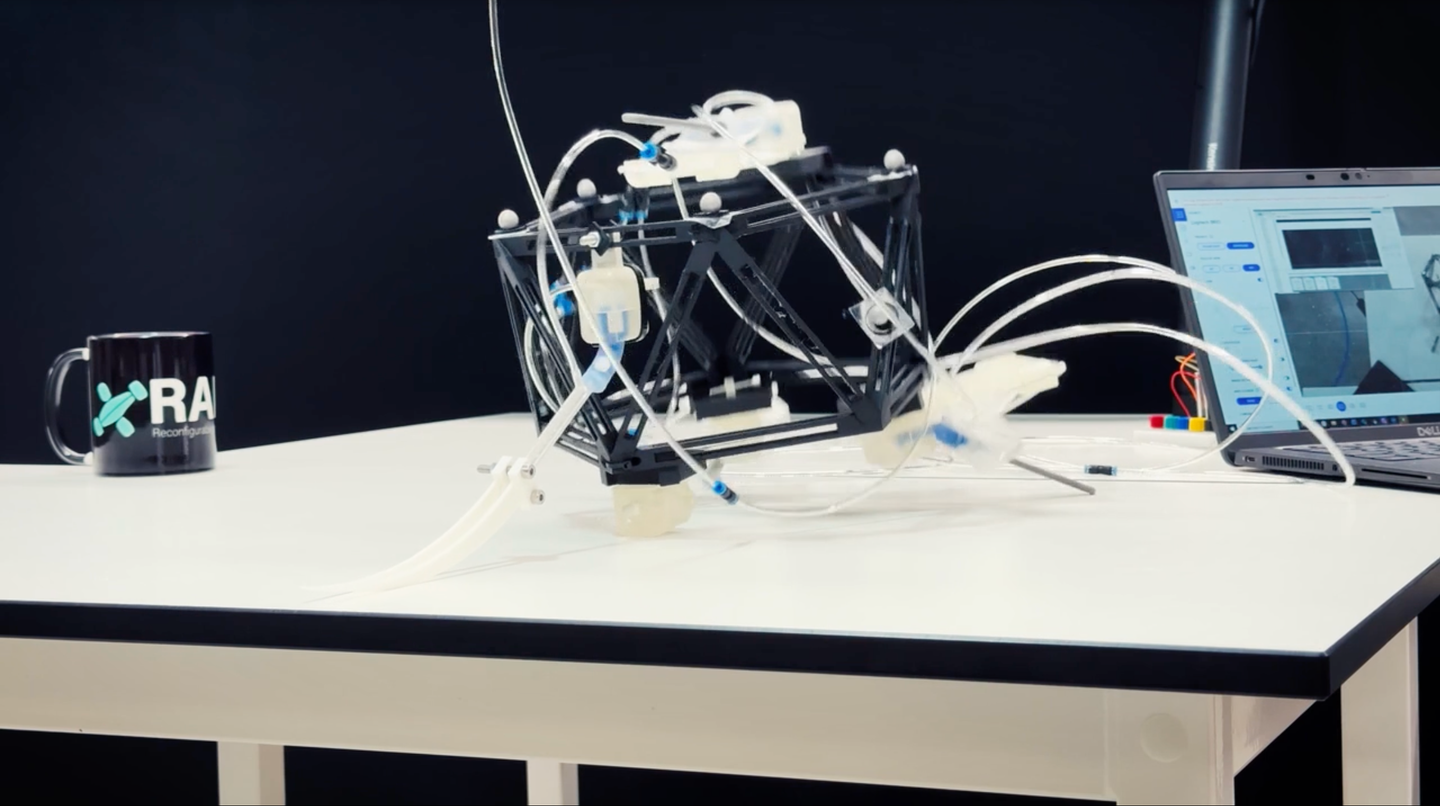Project Silica: The Future of Sustainable Digital Storage Rests in a Pane of Glass
Microsoft’s ‘Project Silica’ is setting the stage for a revolution in data storage shifting to an innovative glass-based medium.

[Oct. 20, 2023: Staff Writer, The Brighter Side of News]
Microsoft's 'Project Silica' is setting the stage for a revolution in data storage. (CREDIT: Microsoft)
In an era where technology's rapid advancement is often taken for granted, Microsoft's 'Project Silica' is setting the stage for a revolution in data storage, invoking a paradigm shift from the familiar Solid State Drives (SSDs) to an innovative glass-based medium.
"SSDs? Where we're going, we don't need SSDs," echoes a sentiment that underscores a radical departure from traditional data storage norms, reminiscent of the bold futurism in the iconic film, Back to the Future.
Project Silica heralds a future where silica, an oxide of silicon pivotal in various glass types production, becomes the cornerstone of data storage. This project doesn't just represent a technological evolution; it's a glimpse into a future where data's permanence and sustainability are as critical as the capacity it holds.
Microsoft's foray into this groundbreaking technology, detailed on its Unlocked blog and highlighted by PCWorld, transcends current storage capabilities, rendering traditional methods seemingly antiquated. Imagine a world where colossal data—enough to hold approximately 1.75 million songs—can be contained in a glass pane akin in size to a coaster. That's the remarkable reality Project Silica is sculpting.
Related Stories
Venturing beyond mere concepts, Microsoft, in collaboration with Elire Management Group, is already channeling Silica's prowess for the Global Music Vault in Svalbard, Norway. This venture isn't just about vast storage; it's a commitment to preserving cultural heritage through music on a medium designed to withstand the test of time.
However, Project Silica's ambition extends far beyond massive data housing. Ant Rowstron, a principal engineer at Microsoft Research Cambridge, elucidates a compelling reason for this venture: sustainability.
Traditional magnetic storage solutions, including those found in the best laptops and high-performance gaming PCs, are ephemeral, with a lifespan barely stretching past a decade. "Magnetic technology has a finite lifetime. You must keep copying it over to new generations of media. A hard disk might last five years... and that frankly, is both difficult and tremendously unsustainable if you think of all that energy and resource we're using," Rowstron explains.
In a proof of concept test for Project Silica, Microsoft and Warner Bros. have successfully stored and read back the classic 1978 “Superman” movie on a 7.5 cm x 7.5 cm x 2 mm piece of durable silica glass — roughly the size of a drink coaster. The glass contains 75.6 GB of data plus error redundancy codes. (CREDIT: Jonathan Banks for Microsoft)
The transitory nature of current mechanical drives is a stark contrast to the millennia of durability promised by Project Silica. The project's aim is not only to store data but to preserve it indelibly. Richard Black, Research Director for Project Silica, emphasizes, "This technology allows us to write data knowing it will remain unchanged and secure, which is a significant step forward in sustainable data storage."
The implications are profound, particularly for archival systems. Data, once written onto the glass, is immutable, marking a departure from the dynamic read/write models of current systems. While this permanence may shatter some consumer dreams of a PlayStation 9 with mutable, vast glass storage, it's a monumental stride in historical and cultural preservation.
Microsoft senior optical scientist James Clegg loads a piece of glass into a system that uses optics and artificial intelligence to retrieve and read data stored on glass. (CREDIT: Jonathan Banks for Microsoft)
This innovation is not an isolated development but part of a broader ecosystem. Project Silica is working in synergy with Microsoft Azure, cloud computing service, leveraging artificial intelligence to enhance the data read/write processes. This "symbiotic" relationship, as described by Microsoft, epitomizes the fusion of futuristic storage solutions with existing cloud technologies.
The technique behind this futuristic storage involves a sophisticated process, beginning with writing data using a femtosecond laser, followed by reading through a computer-controlled microscope, decoding, and finally, storage in passive units requiring no electricity for maintenance. The storage potential is immense, with a single quartz glass plate capable of holding terabytes of data, equivalent to about 3,500 movies—or, humorously, the existing Fast & Furious franchise.
Microsoft Project Silica researcher Youssef Assaf drops a square of silica glass in a kettle of boiling water to demonstrate its durability. The team has baked, boiled, microwaved, demagnetized and scoured similar pieces of glass with steel wool — with no loss to the data stored inside. (CREDIT: Jonathan Banks for Microsoft)
Project Silica's promise extends beyond mere data storage; it's a cultural preservation tool. While current NVMe drives will falter and historical texts will continue to degrade, glass-based storage stands resilient, ensuring that invaluable human knowledge and experiences are accessible to future generations.
Though the immediate practicality for average tech consumers in 2023 might appear limited, Project Silica's implications for the future are vast. It challenges the very tenets of how we perceive data—not just as information to be stored, but as a legacy to be safeguarded.
In this audacious endeavor, Microsoft isn't just redefining storage; it's reimagining our digital legacy. Through Project Silica, data doesn't just live; it endures—etched into the annals of human achievement, not in stone, but in glass.
Note: Materials provided above by The Brighter Side of News. Content may be edited for style and length.
Like these kind of feel good stories? Get the Brighter Side of News' newsletter.



